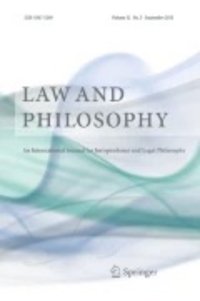When Do Unequal Results Amount to Wrongful Indirect Discrimination?
New publication by Hugo Cossette-Lefebvre in Law and Philosophy

DOI: https://doi.org/10.1007/s10982-025-09526-7
Hugo Coessette-Lefebvre offers a novel framework for understanding the wrongfulness of indirect discrimination from a relational egalitarian standpoint, focusing on both structural disadvantages and wrongful negligence.
Abstract: Many authors adopt a relational egalitarian outlook to explain why discrimination is wrongful. Roughly, for relational egalitarians, (social) equality is about whether all are treated and regarded as equals in society. However, this raises an important puzzle: how can relational egalitarians explain the wrong of indirect discrimination, which captures instances of differential impact absent differential treatment? In this paper, I consider three arguments relational egalitarians have put forward to respond to this question: (1) the compounding argument; (2) the negligence argument; and (3) the no-such-thing-as-indirect-discrimination argument. I argue that none is fully convincing. In closing, I offer a positive proposal: indirect discrimination is wrong either when (1) it contributes to the structural disadvantaging of a group in society by tracking a basing trait, or (2) when a particular practice amounts to wrongful negligence. I argue that each is sufficient to say that a practice is wrongfully indirectly discriminatory.
